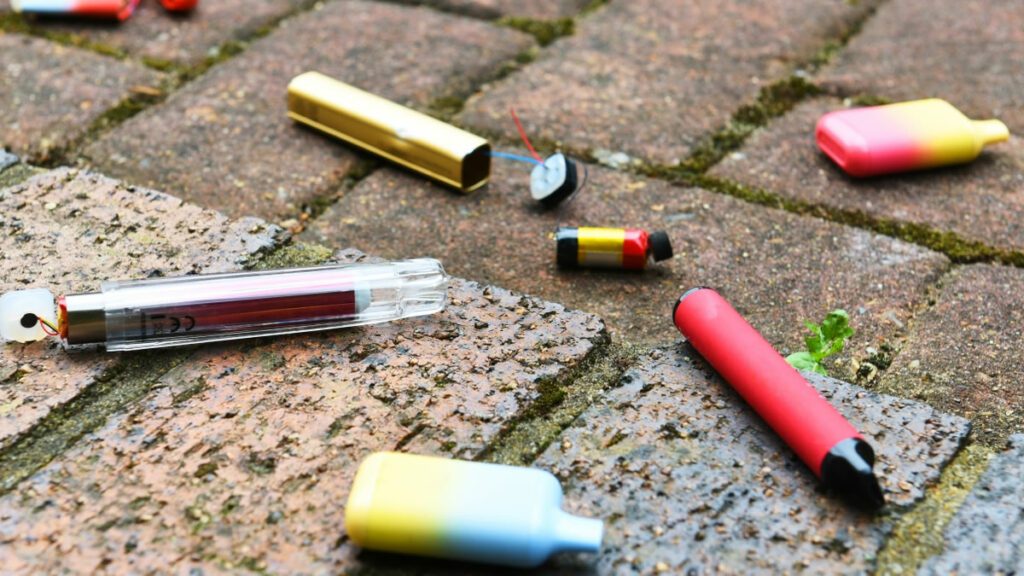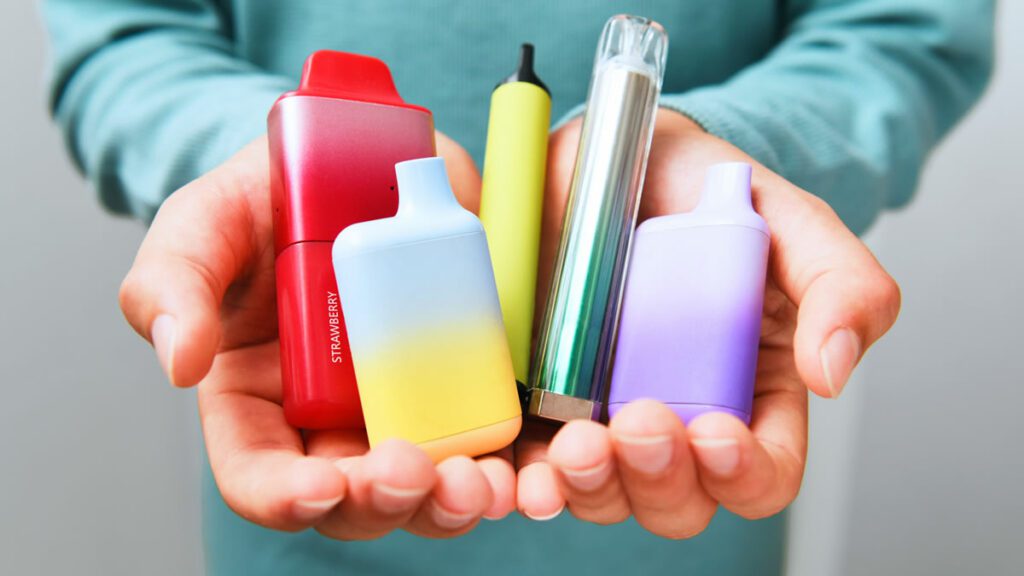The clock is ticking for users and sellers of disposable vapes across the United Kingdom. The government has confirmed its plan to ban the sale and supply of single-use e-cigarettes, with the new rules set to come into force next year. This significant move is part of a wider strategy aimed at tackling rising youth vaping rates and addressing the significant environmental impact caused by discarded devices. For many users accustomed to the convenience of disposables, the countdown to June 1, 2025, marks a deadline to either switch to reusable alternatives or consider quitting altogether.
Why is the UK Government Banning Disposable Vapes?
The decision to outlaw single-use vapes stems from two primary concerns: protecting children's health and mitigating environmental damage.
Protecting Young People
A major driving force behind the ban is the alarming increase in vaping among minors. Data from Action on Smoking and Health (ASH) revealed a concerning trend: the proportion of 11 to 17-year-olds in England reporting vape use climbed from 14 percent in 2020 to around 20 percent by 2023. Public health officials and policymakers worry that disposable vapes, in particular, are fueling this rise.
Critics argue that the design and marketing of many disposables make them especially appealing to underage users. They often come in brightly coloured packaging and boast sweet, candy-like, or fruit-inspired flavours (such as "Gummy Bear" or "Cotton Candy"). This approach, some argue, deliberately targets a younger demographic who might never consider smoking traditional cigarettes but are drawn in by the accessible flavours and ease of use. The concern is that this early exposure could lead to nicotine dependency and potentially act as a gateway to other nicotine or tobacco products.
Environmental Impact
Beyond health concerns, the environmental toll of disposable vapes has become impossible to ignore. These single-use devices create a massive waste problem. It's estimated that a staggering **five million disposable vapes are thrown away each week** in the UK. Many are not disposed of correctly, leading to litter and potential hazards.
Each disposable vape typically contains a lithium-ion battery. When discarded improperly (e.g., in general waste), these batteries pose a significant fire risk in bin lorries and waste processing facilities. Furthermore, discarding these devices means losing valuable raw materials like lithium and copper. Estimates suggest the lithium lost from disposable vapes thrown away in 2022 alone could have powered several thousand electric vehicles. The plastic casing also adds considerably to plastic waste streams.

What Exactly is Banned (and What Isn't)?
The ban specifically targets single-use, disposable e-cigarettes. The key definition is any vape device that is neither rechargeable nor refillable. This includes many popular products currently on the market, such as the widely recognised Elf Bar 600 and Lost Mary BM600 ranges.
Importantly, the ban does not apply to reusable or rechargeable vaping systems. This means that devices designed to be refilled with e-liquid and recharged will remain legal to sell and use. This includes:
- Pod systems (where the user replaces or refills pods)
- Tank systems (mods with tanks that users fill with bottled e-liquid)
The legislation focuses solely on eliminating the single-use format.
What About Using Existing Disposables After the Ban?
A crucial point for current users is that the ban applies to the sale and supply of disposable vapes, not the possession or use of devices purchased *before* the ban comes into effect on June 1, 2025. While retailers will no longer be able to sell them, individuals won't face penalties for using up stock they already own after the deadline. However, acquiring new disposables legally within the UK will become impossible.
Has There Been Opposition to the Ban?
While widely supported by health charities, environmental groups, educators, and parents, the ban has faced opposition, primarily from within the vaping industry itself. The UK Vaping Industry Association (UKVIA) has voiced concerns about potential unintended consequences.
Their main arguments include:
- Risk of Black Market Growth: Banning a popular product category could drive demand underground, leading to an unregulated illicit market selling potentially unsafe, non-compliant disposable vapes.
- Impact on Adult Smokers: The UKVIA maintains that disposable vapes serve as an accessible and effective entry point for many adult smokers looking to switch away from more harmful traditional cigarettes. They worry that removing this option could deter some smokers from switching or even cause former smokers who rely on disposables to revert to tobacco.
They advocate for stricter enforcement against underage sales and non-compliant products rather than an outright ban on the product type.
Broader Context: The Tobacco and Vapes Bill
The disposable vape ban is a key component of the government's wider Tobacco and Vapes Bill (2024–25). This landmark piece of legislation aims to create the UK's first 'smoke-free generation'. Its most significant proposal involves making it illegal to sell tobacco products to anyone born on or after January 1, 2009. This means the legal age for buying tobacco will effectively increase by one year, every year, until eventually, no one can legally purchase tobacco products in the UK.
The disposable vape ban aligns with this broader ambition by tackling a product category seen as particularly appealing to young people and potentially undermining efforts to prevent future generations from taking up nicotine use in any form.
Conclusion: Preparing for the Change
The ban on disposable vapes marks a significant shift in UK public health and environmental policy. With the June 1, 2025, deadline approaching, retailers must prepare to cease selling these products, and users need to consider their options. Whether transitioning to legal reusable vaping systems or using this legislative change as motivation to quit nicotine altogether, the era of single-use vapes in the UK is drawing to a close. The government hopes this move will protect young people and reduce electronic waste, while critics watch closely for potential impacts on the black market and adult smoking rates.

Vape Content Creator | Flavor Reviewer | Lifestyle & Vape Culture Editor
Emily Carter is a vape-focused content creator specializing in flavor reviews, device aesthetics, and lifestyle-oriented vaping content. With hands-on experience testing disposable vapes and pod systems, Emily delivers clear, visually driven insights designed for adult consumers.








